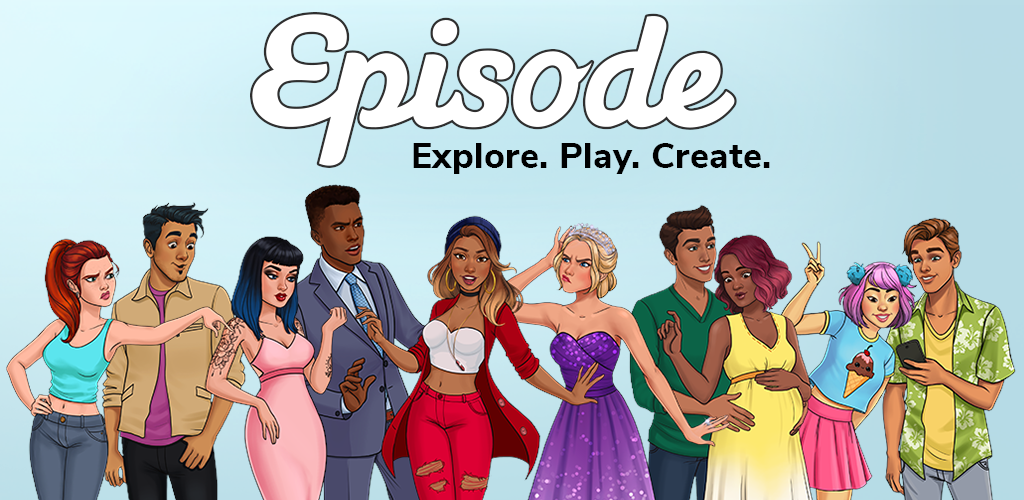Table of Contents
- Unraveling the Mystery Behind Which Episode Does Carl Die
- Why Does a Character's End Matter So Much?
- How Do Storytellers Decide When a Character's Journey Ends?
- What Drives the Search for "Which Episode Does Carl Die"?
- Bringing Emotional Moments to Life in Story Creation
- The Technical Side of Crafting Pivotal Story Events
- Sharing and Discovering Story Overlays and Templates
- Troubleshooting Your Story Creation Process
Unraveling the Mystery Behind Which Episode Does Carl Die
For many who immerse themselves in a captivating narrative, a character's fate, especially one as central as a "Carl" might be, can become a deeply felt concern. It's a natural human reaction to become attached to fictional figures, following their adventures and hoping for their well-being. So, when whispers begin about a significant character's potential departure, perhaps even their demise, the curiosity to pinpoint that exact moment, that specific "which episode does Carl die" question, can become quite strong, almost a compelling need for some readers, you know? It's a question that pops up a lot, actually, showing how much people care about the characters they meet in stories.
This quest for information about a character's final scene often stems from the profound connection we form with stories, you see. Whether it's a character in a grand, sprawling saga or a figure in a more intimate, personal narrative, their journey becomes a part of our own experience. It's a bit like following a friend's path, where every twist and turn holds meaning, and the thought of their story concluding, or taking a dramatic turn, really prompts us to seek out those specific details, in a way. We get invested, and that investment makes us want to know everything, even the difficult parts, basically.
The desire to know precisely "which episode does Carl die" isn't just about spoilers; it's about preparing for an emotional beat, understanding a narrative's turning point, or simply satisfying a deep-seated curiosity about how a story unfolds. It shows how much we invest in these fictional worlds, and how a character's arc, from their beginnings to their very end, shapes our overall perception of the tale, so it's a very human thing, that kind of inquiry, honestly. People really want to be ready for those big moments, or just understand the full scope of a story, you know?
- What Is Agt
- Robert De Niro Wife
- Actor James Bond Iii
- Dr Younan Nowzaradan General Surgery
- Who Is Joan Cusacks Husband
Why Does a Character's End Matter So Much?
The conclusion of a character's arc, especially if it involves their passing, carries considerable weight within any story. It's a moment that can redefine the entire narrative, causing ripples that spread through the remaining plot and affect other figures. A character's exit, you know, can serve as a catalyst for growth in others, a somber reflection on themes of loss, or even a powerful statement about the world the story inhabits, arguably. When a character leaves the stage, it's never just about that one person; it reshapes everything else, pretty much.
When a reader or viewer asks "which episode does Carl die," they are often seeking to understand the impact of that event. It's not just about the moment itself, but what it means for the story's direction, the emotional toll it takes on the audience, and the lasting legacy of that character. A well-executed character departure can stick with people for a long, long time, really. It can become a defining moment for the entire narrative, something people talk about and remember for years, you know, because it hits them right in the feelings.
This kind of event, a character's final bow, can also serve as a crucial plot device, pushing the story into new, unexpected directions. It might be the turning point that forces other characters to make difficult choices, or it could be the tragic culmination of a long-running conflict. The anticipation surrounding "which episode does Carl die" highlights the significance of such narrative choices, too it's almost a shared experience of anticipation among the audience, in some respects. It shows that people are deeply invested in the consequences of these fictional lives, and how they play out, basically.
A character's end can also be a way for a storyteller to make a statement, to show the true cost of the conflicts within the story. It might be a reminder that even the most beloved figures are not immune to the dangers of their world. This can make the story feel more grounded, more real, and ultimately, more impactful. The questions about "which episode does Carl die" are a direct result of this emotional investment, a sign that the story has truly resonated with its audience, honestly.
How Do Storytellers Decide When a Character's Journey Ends?
Craft
Related Resources:

Detail Author:
- Name : Prof. Gage Barrows
- Username : sabina.morar
- Email : psimonis@yahoo.com
- Birthdate : 1993-12-20
- Address : 321 Fae Manor Apt. 322 Carsonburgh, OK 35558-2617
- Phone : +1 (248) 282-7029
- Company : Schimmel-Wunsch
- Job : Postal Service Mail Sorter
- Bio : Sunt officia modi odio consequatur et. Similique ab ut velit nesciunt omnis. Explicabo quia facilis dolorum fugit sed qui voluptates.
Socials
tiktok:
- url : https://tiktok.com/@spencers
- username : spencers
- bio : Quo sunt voluptatem est iure reprehenderit blanditiis officiis magnam.
- followers : 3751
- following : 2769
linkedin:
- url : https://linkedin.com/in/sylvia.spencer
- username : sylvia.spencer
- bio : Et velit voluptates quae aperiam nisi ut libero.
- followers : 4506
- following : 2710